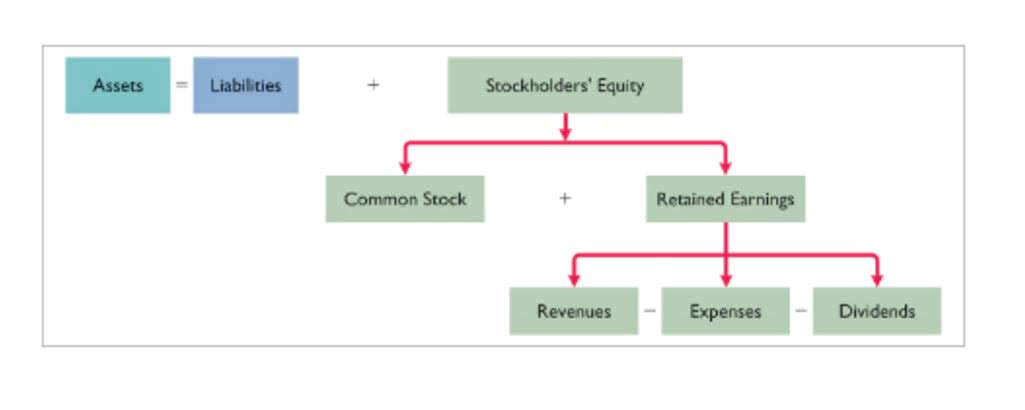
Eddie illustrated that shareholders do not play a major role in running the company, so everyday decisions are left to the managers. The shareholder is able to vote for the board of directors, but they do not have the power to decide who will run for the seats. Lastly, Eddie saw that Pear Products’ employees have powers as well, as they are the engine behind the production of the product or service. The term “preference shares” refers to a company’s stock that has dividends that are paid to stockholders ahead of payments on the regular stock. The market price that investors pay for common shares is determined by market forces, the worth of the underlying company, and investor mood. The same thing happens when startup businesses are bought by bigger enterprises.
Definition and Examples of Shareholders
Preferred stocks are less dilutive of company ownership since they do not come with voting rights. They offer the issuing firm other benefits, not least because being less volatile makes them appeal to different investors. The fixed dividends also stabilize the company’s balance sheet, making it more attractive to additional investors. Another reason is that, for some companies, the cost of issuing preferred stock is lower than issuing bonds.
Shareholder (Stockholder): Definition, Rights, And Types
Friends and relatives may be among them, followed by venture capital investors. Shareholder and Stakeholder are often used interchangeably, with stockholder definition economics many people thinking that they are one and the same. A shareholder is an owner of a company as determined by the number of shares they own.
What Qualities Make a Good Investor?
- In older, more established companies, majority shareholders are frequently related to company founders.
- The end objective is always the same, to seek some return (profit) in order to build wealth.
- A shareholder is an individual, company, or institution that has a share of a company’s stock among its assets.
- Passive (indexed) investing is becoming increasingly popular, where it is overtaking active investment strategies as the dominant stock market logic.
- NerdWallet, Inc. is an independent publisher and comparison service, not an investment advisor.
For example, a portion of many people’s paychecks is given to a pension fund each month. The pension fund uses the money to buy other financial assets to earn a profit. In this case, the pension fund is an institutional investor as they are buying shares on behalf of the people who invested their money in the fund. However, according to the UK’s HM Revenue and Customs Office, an institutional investor can either invest on behalf of others or in their own capacity. If they invested using their account, then they would not be considered an institutional investor. While some people own their shares, others own them through institutional investors who invest their money in other savings or investment accounts.
Venture capitalists are private equity investors, usually in the form of a company, that seek to invest in startups and other small businesses. Unlike angel investors, they do not seek to fund businesses in the early stages to help get them off the ground, but rather look at businesses that are already in the early stages with a potential for growth. These are companies often looking to expand but not having the means to do so. Venture capitalists seek an equity stake in return for their investment, help nurture the growth of the company, and then sell their stake for a profit. You should research each stock you purchase, which includes a deep dive into the bones of the company and its financials. Many investors opt to save time by investing in stocks through equity mutual funds, index funds and ETFs instead.
A company limited by shares requires its stockholders to reimburse the business for the shares they have purchased. The stockholders normally do not have to pay any more money to the corporation for debts after those shares have been fully paid for. Preferred shareholders, on the other hand, receive a fixed dividend and usually do not have a claim to any additional earnings. Once you’re a shareholder, you have a claim to the company’s earnings and assets, and a right to vote on certain management decisions. For example, in May 2021, the shareholders of Chevron Corporation voted to approve a proposal to reduce emissions from the use of its products. Because a shareholder owns one or more shares of stock in a company, a shareholder is a partial owner of the company.
- These give owners a continuing stake in the business and its earnings, offering the possibility of investment development through both capital gains and dividends.
- Start with a free account to explore 20+ always-free courses and hundreds of finance templates and cheat sheets.
- Stakeholders make up a broad group that includes anyone who stands to be affected by the business (employees, investors, etc.).
- Stockholders are also known as shareholders, and they are the risk takers and supporters of businesses.
- If you’re a shareholder, this makes “part-owner,” but this doesn’t mean you own the company’s physical assets like chairs or computers; those are owned by the corporation itself, a distinct legal entity.
- While some people own their shares, others own them through institutional investors who invest their money in other savings or investment accounts.
The commissions charged by online brokers for stock trades vary, so it’s important to shop around. See NerdWallet’s picks for the best brokers for stock investors for more details. When you own stock in a company, you are called a shareholder because you share in the company’s profits. A stock is a security that represents a fractional ownership in a company.
- In addition, there are those who put their money into a business in exchange for part ownership in the company.
- The main difference between preferred and common shareholders is that the former typically has no voting rights, while the latter does.
- Being a shareholder isn’t all just about receiving profits, as it also includes other responsibilities.
- This type of shareholder is often company founders or their descendants.
The articles of organization, which may govern both internal and exterior matters, are essential legal papers for a corporation. A special resolution must get a majority vote of 75% in favor of passing. It is assumed that an ordinary resolution will be put to the vote if the kind of resolution necessary is not specifically stated. In addition to this, a stockholder may object to any resolution adopted at the general body meeting for the nomination of a director.

Shareholder (Stockholder): Definition, Rights, and Types

NerdWallet, Inc. is an independent publisher and comparison service, not an investment advisor. Its articles, interactive tools and other content are provided to you for free, as self-help tools and for informational purposes only. NerdWallet does not and https://www.bookstime.com/ cannot guarantee the accuracy or applicability of any information in regard to your individual circumstances. Examples are hypothetical, and we encourage you to seek personalized advice from qualified professionals regarding specific investment issues.
They suffer from oppression when the majority acts against the benefit of the minority. The property of the company that corresponds to a shareholder is based on the number of shares that it has, on the total in which the capital of the same is divided. Having part of that capital gives the shareholder various rights and obligations of a political and economic nature.